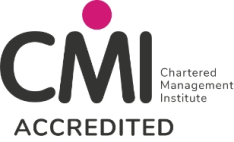CMI Level 5 Diploma in Professional Consulting Training Course Outline
Our CMI Level 5 Diploma in Professional Consulting Training Course is thoughtfully structured to meet the 180 Guided Learning Hours requirement, providing delegates with 32 hours of comprehensive course material and 148 hours of interactive e-learning content.
Qualification Level: Diploma
Minimum Credit: 43
The below-mentioned topics will be delivered by our professional instructor in the Online Instructor-Led Training.
Unit 5033: Communication for Consultants (Credit Value 7)
Module 1: Importance of Communication
- Communicate with Clients
- Impact of Communication Skills on the Client/Consultant Relationship
- Different Communication Methods May Be Used to Identify Clients’ Needs
- Impact of Communications Skills on Achieving Intervention Objectives
- How Client Confidentiality Is Observed by the Consultant?
Module 2: Run Effective Meetings with Clients
- Process of Planning and Preparing for a Meeting
- Skills Required of a Consultant When Running Meetings
- Importance of the Consultant Employing Questioning and Listening Skills
- Different Types and Formats of Meetings
Module 3: Present Information, Findings, Conclusions, and Recommendations to Clients
- Principles of Delivering a Presentation
- Use of Presentations as a Method of Communicating Information to Clients
- Tools and Resources a Consultant May Prepare Effective Written Reports
- Different Writing Styles
Unit 5031: Role and Responsibilities of a Consultant (Credit Value 6)
Module 4: Understand the Role of the Consultant
- Types of Organisational Structures for Consulting Practices/Departments
- Role of the Consultant
- Emerging Trends and Challenges Facing the Consulting Industry
- Demand for Consultants Changes in Different Economic Climates
Module 5: Assess Current Competencies, Knowledge, and Behaviours
- Competencies Required of a Consultant Change
- Competencies, Knowledge, and Behaviours Against the Consultancy Competency Framework (CCF)
- Completion of Personal Development Plan (PDP)
Module 6: How to Behave in a Professional and Ethical Manner?
- Professional Behaviours Required of a Consultant
- Ethical Dilemmas That May Arise in the Course of the Work of a Consultant
- Duty of Care Owed by a Consultant to a Client
Unit 5009V1: Project Development and Control (Credit Value 6)
Module 7: Identify the Components of Project Stages and Lifecycle
- Component Stages of a Project
- Project Lifecycle from Conception to Commissioning or Hand Over
- Assess Where Projects Fit in Operational Management Activities
Module 8: Project Methodologies and Their Application
- Standard Approaches Available to Manage Projects
- Process of Developing an Effective Project Management Environment
- Identification of and Communication with All Project Stakeholders
- Fundamentals of a Business Case to Support a Project
Module 9: Develop a Project Plan, Identify and Mitigate Risks
- Design a Project Plan to Achieve a Specific Objective
- Identify the Financial Components
Module 10: Construct a Monitor and Review Strategy
- Construct a Monitoring and Review Strategy
Unit 5030: Planning and Managing Consultancy Interventions (Credit Value 8)
Module 11: Need to Adopt a Structured Approach
- Types of Consultancy Interventions and Approaches
- Role of Planning in Consultancy Interventions
- Stages of the Consultancy Cycle
- Inputs and Deliverables at Each Stage of the Consultancy Cycle
- How to Overcome Challenges and Risks?
- Importance of Scoping to a Consultancy Intervention
Module 12: Use Project Management Techniques in a Consultancy Intervention
- Components of an Effective Project Plan
- Need for Budgeting of Financial and Non-Financial Resources
- Develop Systems and Practices to Identify and Manage Potential Risks
- Appropriate Infrastructure to Support Project Delivery
- Impact of the Consultant's Own Role and Skills in Project Delivery
- Importance of the Project Leader Quality Assuring
Module 13: Conduct a Consultancy Intervention
- Identify the Resource Implications
- Data Analysis Tools/Models and Evaluate the Contribution
- How to Develop a Cohesive Set of Conclusions/Findings?
- Process of Developing Recommendations from the Analysis
Unit 5032: Client Relationship (Credit Value 8)
Module 14: Importance of the Client/Consultant Relationship
- Different Organisational Structures and Processes
- Key Factors in Developing a Positive Client/Consultant Relationship
- Assess the Impact that Client/Consultant Relationships Have on Consultancy Interventions
- Importance of Trust in a Client/Consultant Relationship
Module 15: Develop and Manage the Client Relationship
- Tools and Techniques Used to Identify the Needs of Clients and Key Stakeholders
- Describe a Range of Skills Used By the Consultant
- Impact of Professionalism, Ethical Conduct, and Confidentiality
- Common Causes of Breakdown in the Client/Consultant Relationship
- Plan to Minimise Potential Conflicts in the Client/Management Consultant Relationship
Module 16: Use Negotiation and Influencing Skills
- How the Principles of Negotiation Can Be Used?
- Influencing and Negotiation Tools Techniques and Models
- How the Consultant May Use Influencing Skills?
Unit 5034: Problem Solving, Tools, and Techniques for Consultants (Credit Value 9)
Module 17: Understand How to Identify the Client Need
- Tools and Approaches a Consultant May Employ
- Impact on the Intervention
Module 18: Data Collection Methods and Confidentiality in a Consultancy Intervention
- Different Sources of Data and Information
- How Validity and Reliability of Data and Information Can Be Evaluated?
- Importance of Confidentiality
Module: 19 Apply Analysis Tools Within Consultancy Interventions
- Analytical Tools, Techniques, and Models
- Select Appropriate Analytical Tools, Techniques, and Models
- Findings and Draw Conclusions Following Analysis
- Determine Options to Address the Needs of the Client
- Assess Risks to the Client of Adopting Alternative Course of Action








































 Back to course information
Back to course information




 If you wish to make any changes to your course, please
If you wish to make any changes to your course, please

